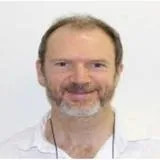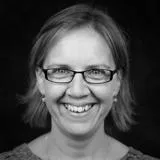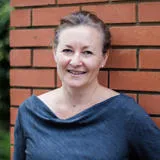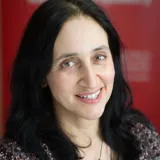The need to ‘level up’ global mental health through enabling research leadership from the global south is a huge priority and a focus of the Centre for Global Mental Health at King’s and London School of Hygiene and Tropical Medicine. This demands a shift in the way universities in high-income countries partner with global south colleagues, and proper recognition of equity and capacity strengthening efforts within academic career pathways. It also requires a shift in research funding to support leadership of research by low and middle-income country investigators.
Professor Charlotte Hanlon, Professor of Global Mental Health at King’s IoPPN and Co-Director of the Centre for Global Mental Health with Professor Crick Lund.
27 April 2023
Global collaboration to build researcher capacity and boost mental health research across Africa
Researchers at the Institute of Psychiatry, Psychology & Neuroscience (IoPPN) at King's College London were involved in a global collaboration, hosted by the Academy of Medical Sciences and the Academy of Science of South Africa (ASSAf), resulting in two reports on improving mental health research in countries across Africa.
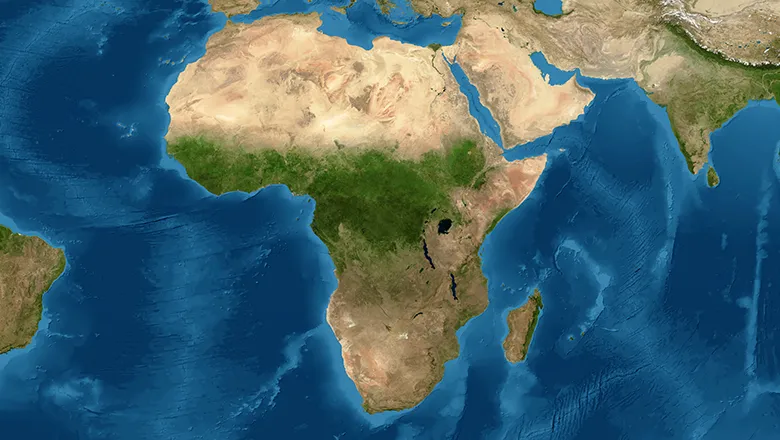
The reports are based on two workshops from November 2022 that focused on mental health research and supporting career development in countries across Africa including South Africa, Ghana, Ethiopia and Nigeria. IoPPN academics contributing to the reports included Professor Louise Arseneault (co-chair with Professor Tholene Sodi), Dr Rina Dutta, Professor Charlotte Hanlon, Professor Crick Lund and Professor Melanie Abas.
Improving mental health research in countries across Africa
Although there is some evidence of increasing investment in research and awareness of mental health issues, mental health services are a neglected aspect of healthcare across countries in Africa. More than 70 researchers, policymakers and wider stakeholders joined the workshop from across the continent, including South Africa, Ghana, Ethiopia and Nigeria, to discuss how best to take forward mental health research in the region and identify research gaps. During the workshop, Professor Crick Lund gave a plenary presentation on social determinants of mental health.
Discussions identified that there remains an urgent need for additional research across all stages of the mental health translational pathway and that it is critical key research gaps are addressed to tackle the challenge of mental health.
In particular, new studies need to consider the fundamental importance of social factors such as gender, age, and geographic area, as well as biology in mental health outcomes. Recent years have seen additional evidence published on the effectiveness of mental health interventions, showing those that target the social determinants could deliver benefits for large numbers of people over prolonged periods of time.
To improve future studies, participants also suggested strengthening and diversifying data sources, including the need for more information on disease burdens and priority populations, in addition to social determinants, of mental health.
The participants emphasised the importance of engaging with people with lived experience to provide opportunities for meaningful inputs at all stages. This could include identifying and prioritising research questions, as well as co-creation and delivery of interventions.
Additional research also requires an interdisciplinary and cross-sector approach based on extensive partnerships, with greater sub-regional and international collaboration. There is a need to develop consistent, locally defined, standardised and appropriate metrics for measuring outcomes, and ensuring that these are culturally relevant.
Professor Himla Soodyall, Executive Officer at the Academy of Science of South Africa, said: "The presentations at this workshop highlighted the various ways in which mental health issues challenges our society. The engagement with scholars from South Africa, other countries in Africa and the UK has provided us with a scaffold to have further engagements regionally and we look forward to building on collaborations to address mental health challenges going forward."
We welcome the report's emphasis on re-imagining collaboration between the Global North and the Global South which involves devolving power to African partners. At King's College London we are fortunate to collaborate with the African Mental Health Research Initiative (AMARI) which is building an African-led network of future leaders in mental, neurological and substance use research.
Professor Melanie Abas, Professor of Global Mental Health at King's IoPPN
Strengthening career development in countries across Africa
The Academy of Medical Sciences partnered with ASSAf to co-host a researcher capacity building workshop that brought together researchers from countries across Africa, at different career stages and disciplines, career development experts and staff. Participants also included the Academy of Medical Sciences' Global Challenges Research Fund Networking awardees and Newton Advanced Fellows. It provided the opportunity for participants to share and reflect on their experiences of mentoring, peer support and career development to identify best practices and key challenges.
The discussions highlighted the multiple approaches available to support the personal and professional development of researchers, including diverse types of mentoring, technical training, leadership development, and coaching. During the workshop, Professor Charlotte Hanlon and Dr Rina Dutta gave plenary presentations.
It was a privilege to give a plenary talk and network with emerging research leaders in Africa, sharing best practices for career development including the innovative mentoring programme of the Academy of Medical Sciences. King's has enabled me to develop expertise in this area with three leadership roles in training and capacity development that have given me insight into the important ingredients of mentoring and having a mentor “whose hindsight becomes your foresight”. Empowering others to take these principles to their institutions was incredibly rewarding.
Dr Rina Dutta, Reader in Suicidology and Psychiatry at King’s IoPPN
The report highlights the importance of researchers securing career development opportunities to navigate career pathways and achieve their full potential. Support schemes, such as mentoring, need to adopt a researcher-centred approach and be tailored to a local context and individual needs.
Creating partnerships and international networks can provide opportunities for capacity development; however, more efforts are needed to shift the centre of gravity of international research collaborations to Africa.
Professor Tom Solomon FMedSci, Vice-President (International) at the Academy of Medical Sciences, said: "The Academy of Science of South Africa and the UK Academy of Medical Sciences have closely aligned missions and values. Together, we have the power to convene people around shared policy issues and improve how research is done for the benefit of people everywhere.
“Many of the global health challenges we face, such as improving mental health, require international collaboration and knowledge sharing, as well as ensuring that researchers have the best support to deliver excellent science. Our partnership provides a solid foundation for this, enabling us to help drive a more progressive and open research sector and to foster the next generation of research leaders globally."
Download the report about mental health research in countries across Africa here and the report about building researcher capacity in countries across Africa here.
For more information, contact Amelia Remmington (Communications & Engagement Officer)

